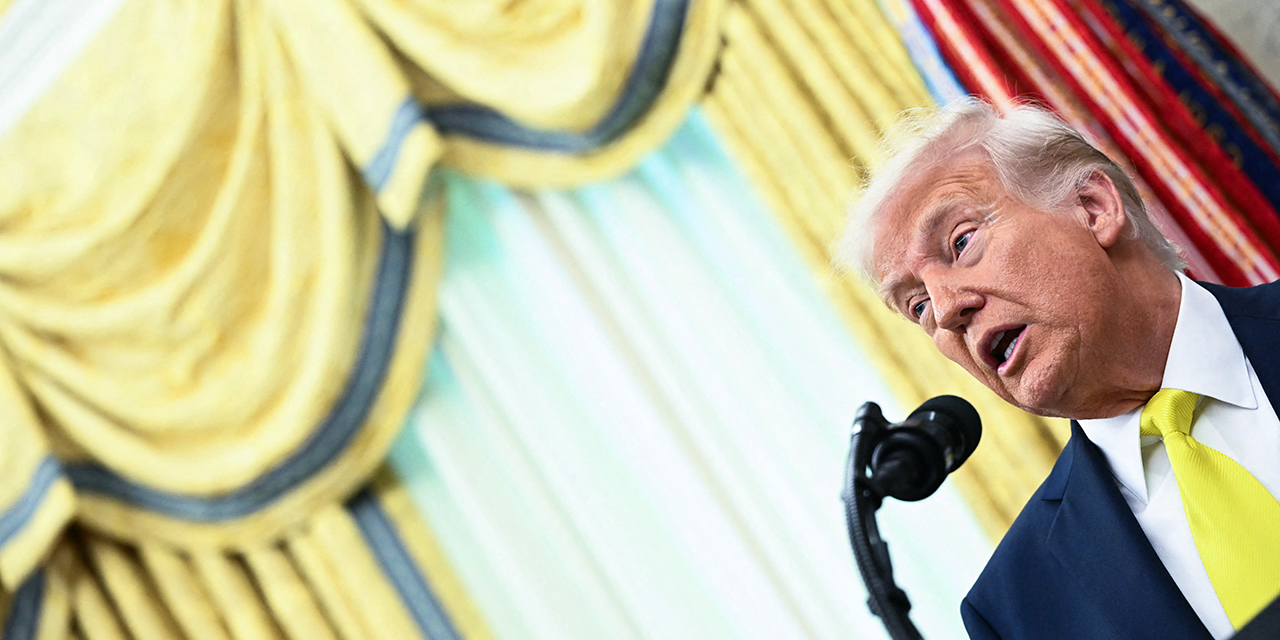
Last month, Kari Lake, senior adviser for the US Agency for Global Media (USAGM), called the agency she oversees “irretrievably broken” and announced that she was gutting it. Lake accused USAGM, responsible for American broadcasting efforts in support of freedom and democracy abroad, of overspending and self-dealing, and alleged that spies and terrorist sympathizers had infiltrated it.
Just 12 days later, though, the Trump administration shrewdly saved the most important piece of the agency: the Open Technology Fund (OTF). In doing so, the administration reaffirmed that empowering people with open, secure technology is just as critical to U.S. foreign policy as are the messages we broadcast. Now it’s incumbent upon Congress to follow President Trump’s lead and realign USAGM’s mandate and funding to support what works.
Finally, a reason to check your email.
Sign up for our free newsletter today.
Unlike most parts of USAGM, OTF does not produce news content. Instead, it funds and develops tools that help people in repressive regimes access blocked information. These include virtual private networks (VPNs), encrypted messaging apps like Signal, and censorship-resistant technologies such as Tor. All OTF-supported projects are open source and freely available to anyone.
In theory, that’s consistent with the rest of USAGM’s mission. The agency’s legacy media platforms—including the Voice of America (VOA), Radio Free Europe/Radio Liberty (RFE/RL), and Radio Free Asia (RFA)—were once essential tools in the fight against Communism, broadcasting uncensored news and pro-Western messages behind the Iron Curtain over radio and television.
Today, however, these platforms are expensive and inefficient, as global audiences have largely shifted online. Worse, USAGM broadcasters are struggling to reach the very people they’re meant to inform. Much of the agency’s audience growth now comes from relatively open media environments, where access to Western content is already abundant.
In repressive regimes such as China, Iran, and Russia, USAGM’s impact is increasingly marginal. RFE/RL’s reach in Russia plummeted after the Kremlin cracked down on foreign media—in 2021, the broadcaster had to suspend operations in the country for the first time in three decades. China’s “Great Firewall,” meantime, makes it nearly impossible for audiences there to access RFA’s reporting. USAGM even classified RFA’s audience size as “unreportable” in 2024 because it could not verify who was actually able to access its content in China, Mongolia, and North Korea—the countries most important to its mission.
While most of USAGM’s efforts are increasingly outdated, the Open Technology Fund has proven effective and efficient at breaking through censorship and projecting pro-democratic messages into hostile territory. Over the past three years, the number of people using OTF-supported circumvention tools has quadrupled, from 9 million to over 40 million.
Even the waning influence of legacy USAGM programs has become wholly reliant on OTF. In Iran, 90 percent of VOA and RFE/RL’s audiences access content via OTF-supported technologies. In Russia, the invasion of Ukraine caused OTF-backed Psiphon VPN’s daily users to spike from 48,000 to 1.5 million in a matter of months.
At just $0.07 per user per month, these Internet freedom tools offer a remarkably cost-effective way to break through government censorship. Yet, despite their impact, OTF receives only $43.5 million annually—roughly 5 percent of USAGM’s $867 million budget.
President Trump’s decisive reversal on OTF’s fate signals that the old ways of waging information campaigns are giving way to new ones. To improve the efficiency and effectiveness of America’s global communications strategy, Congress should follow the president’s lead by shifting a significant portion of USAGM’s budget away from outdated legacy broadcasting and toward expanding the Open Technology Fund’s reach.
Ronald Reagan once called America’s ability to communicate with the world “one of the most potent weapons in our arsenal.” Today, that power lies in VPNs, encryption, and the open Internet.
Photo by MANDEL NGAN/AFP via Getty Images
City Journal is a publication of the Manhattan Institute for Policy Research (MI), a leading free-market think tank. Are you interested in supporting the magazine? As a 501(c)(3) nonprofit, donations in support of MI and City Journal are fully tax-deductible as provided by law (EIN #13-2912529).
Source link

















